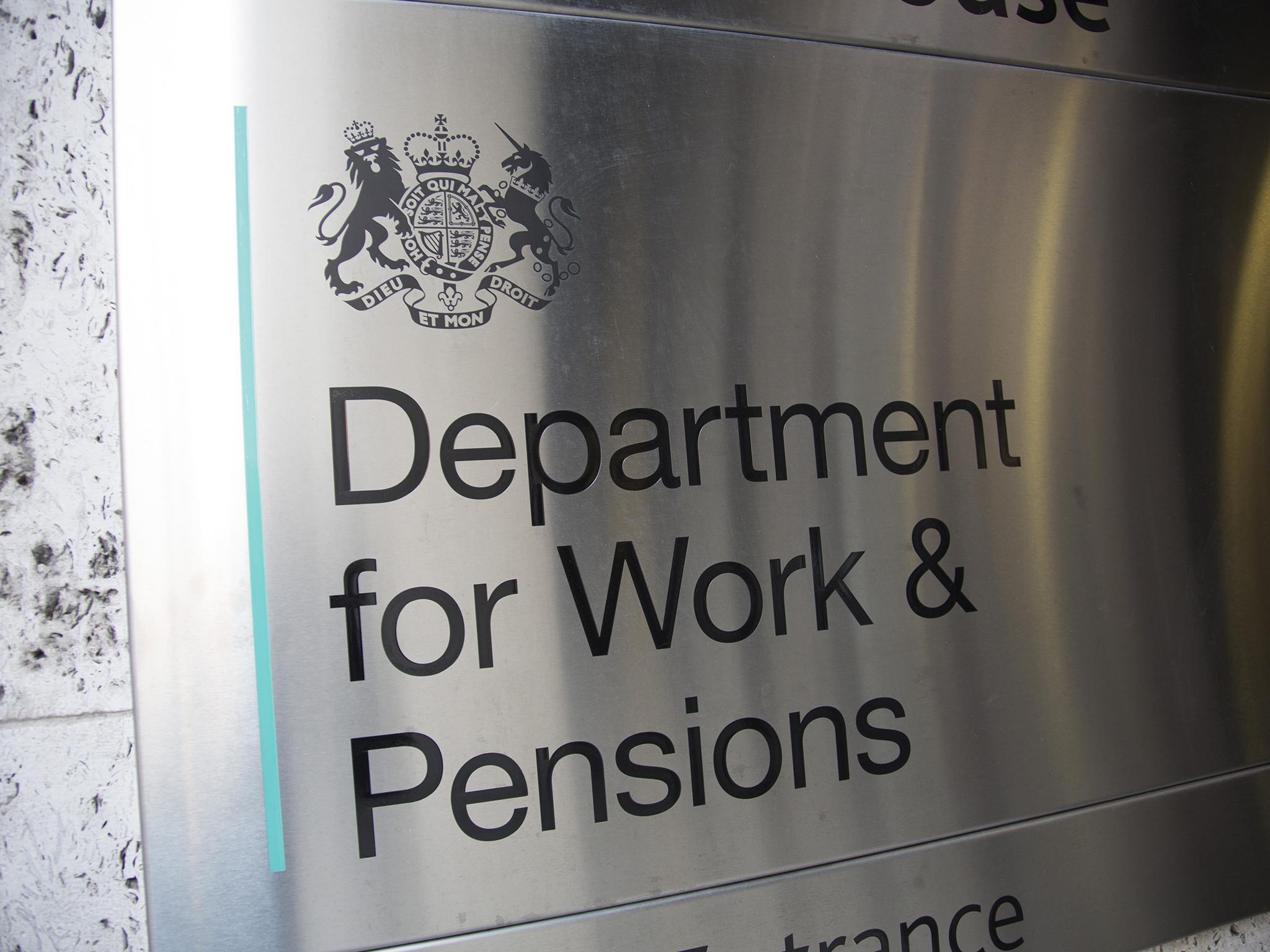‘Disgraceful’ surge in suicides among benefit claimants prompts condemnation of DWP
Government has investigated 69 suicides of benefit claimants in last five years – which is 'highly unlikely' to be overall number of self-inflicted deaths, says National Audit Office

Dozens of suicides of benefit claimants have been investigated by the government in recent years, it has emerged as campaigners warn of “significant weaknesses” in the way ministers respond to such cases.
The national Audit Office (NAO) reveals ministers have investigated 69 suicides of benefit claimants since 2014‑15, of which 21 – nearly a third – were completed between April and November last year.
It states that it was "highly unlikely’ that the Department for Work and Pensions (DWP) investigates all such cases, and that ministers had no idea whether lessons from the reviews were ever implemented.
The report, carried out after the DWP admitted it did not record the number of benefit claimants who have ended their life by suicide, states that it is “highly unlikely” that the 69 cases represented the overall number of self-inflicted deaths among this group.
It criticises the department for lacking clear guidance on when a case should be investigated and for not having any “robust record” of contact from coroners about such cases, which it said meant some cases flagged up by coroners may not have resulted in an internal review being initiated.
Campaigners said it was “disgraceful” that people were dying “in part because of the actions of a system that should be supporting them” and called for the DWP to be held accountable through “robust independent regulation”.
“It’s not enough for the DWP to acknowledge the issues. It needs to be transparent when reporting on systematic problems that have put people at risk, and open itself up to meaningful independent scrutiny.”
Stephen Timms, the newly appointed chair of the Work and Pensions Committee, said the report exposed “significant weaknesses” in the way the DWP learnt lessons from suicides among people it serves.
He added: “The NAO’s finding that it is ‘highly unlikely’ that DWP investigates all such cases is cause for serious concern. Even where it does try to learn lessons, it doesn’t check to see whether recommendations from its own investigations have been put in place, or if there are any trends or systemic issues that could be identified.”
Frank Field MP, former chair of the committee, who prompted the NAO to look into this issue after asking the DWP for the data on benefit claimant suicides and being told they did not hold the data, called for urgent action to prevent further deaths.
“Nothing was happening until I complained. They now need to ask, how do we now learn from this data? We need an independent inquiry for protecting vulnerable claimants. We want some recommendations on what the department’s guidelines should be,” he said.
“First of all, on how we prevent the suicides. And secondly, if we fail, what do we do then? On a human level it’s a tragedy, on a national levels it’s a scandal.”
A number of recent studies have established links specifically between universal credit and suicide risk, with experts blaming the “complicated, dysfunctional and punitive” nature of the new benefit and the frequency at which it pushes people into debt and rent arrears.
Ayaz Manji, senior policy and campaigns officer at mental health charity Mind, said: “It is disgraceful to see cases of people dying in part because of the actions of a system that should be supporting them.
“The DWP must be held accountable – through robust independent regulation – when problems with benefits are recorded as a factor in someone taking their life.
“It’s not enough for the DWP to acknowledge the issues. It needs to be transparent when reporting on systematic problems that have put people at risk, and open itself up to meaningful independent scrutiny.”
Michael Paul, from Disability Rights UK, said the report was “shocking”, adding: “We hear repeatedly about improvements to processes. But the stark reality appears very different. It’s yet more evidence that the welfare benefits system is unfit for purpose. The system should be supporting disabled people who need it, not putting them at risk.”
A DWP spokesperson said it was taking the NAO’s findings “extremely seriously”.
They added: “We are urgently working to drive forward improvements and learn the lessons from these tragic cases. We will now carefully consider the NAO’s findings as part of our ongoing work.”
Subscribe to Independent Premium to bookmark this article
Want to bookmark your favourite articles and stories to read or reference later? Start your Independent Premium subscription today.

Join our commenting forum
Join thought-provoking conversations, follow other Independent readers and see their replies